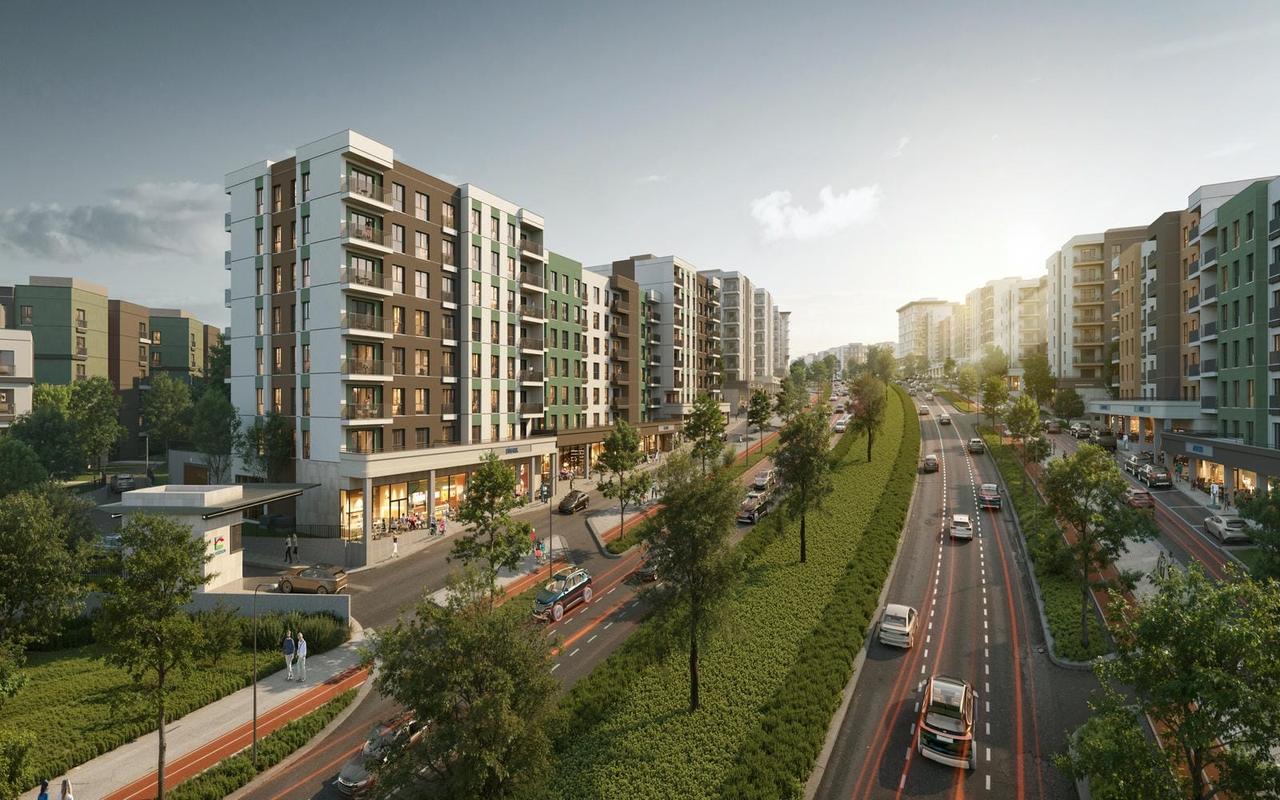
Türkiye introduced a tradable real estate certificate program this week, enabling citizens to invest in housing projects through market-listed shares without relying on traditional mortgage financing.
The program, which starts with the state-backed large-scale "Damla Kent" residential project in Istanbul’s Basaksehir district, aims to broaden access to the real estate market amid rising housing costs and limited affordability.
The certificates, priced at ₺7.59 ($0.19) each, will be offered to the public from Aug. 4 to 8 and begin trading on Borsa Istanbul on August 11.
The model allows participants to either accumulate shares toward full home ownership, receive a portion of project revenues, or trade the certificates on the exchange for profit.
The first application of this investment model is the Damla Kent project, a luxury residential complex to be built in Basaksehir, on Istanbul’s European side. The project will include 5,325 residential units and 244 commercial spaces across a 1.26 million square meter construction area, built on a 379,000 square meter plot.
Construction is scheduled to begin on Oct. 1, 2025, and conclude by February 4, 2029. The total project value is estimated at ₺51.1 billion ($1.25 billion), with projected revenue from unit sales reaching approximately ₺64.8 billion. The initial public offering size is set at ₺21.3 billion.
In its first stage, 1,540 homes will be covered by the real estate certificate offering, with an additional 674 units expected to be included in the second stage of the public offering.

The program is designed to provide multiple pathways for participation:
Unlike conventional real estate purchases, the system does not involve down payments, interest charges, or installment obligations. It is designed to lower entry barriers and allow participants to gradually build equity in a residential project or treat the certificates purely as investment instruments.

The program is being rolled out as Türkiye’s housing market faces severe affordability challenges, with the OECD’s Housing Price Index showing that nominal housing prices have increased more than twentyfold over the past decade, while rents have risen twelvefold. In real terms, Türkiye ranks third globally in housing price growth.
Addressing the issue, Türkiye's Treasury and Finance Minister Mehmet Simsek has repeatedly emphasized the importance of increasing housing supply to bring prices under control. Speaking in July at the ruling party’s policy retreat in Ankara, he warned that nearly 15% of the population has no viable path to home ownership, Türkiye daily reported.
Simsek stressed that without addressing the supply gap, price stabilization would remain out of reach—even under low inflation. He suggested that future housing policies may need to involve ultra-long-term financing, possibly extending to 30, 40, or even 50 years, to enable access for the country’s most vulnerable segments.
Despite the program’s inclusive structure, critics point to the high cost of housing units in the Damla Kent project. One-bedroom apartments are priced at ₺77,311 ($1,905.97) per square meter, and two-bedroom units at ₺74,458—substantially above Istanbul’s 2025 average of ₺63,279 per square meter.
Prices in Basaksehir are lower still, standing at ₺55,576 per square meter as of June, according to data from AI-powered real estate analytics platform Endeksa.
To obtain full ownership of a unit in the Damla Kent project through certificate accumulation, investors must collect a substantial number of shares.
A 62-square-meter one-bedroom apartment (1+1) requires 631,516 certificates, while an 88-square-meter two-bedroom unit (2+1) demands 863,276 certificates.
At the initial offering price of ₺7.59 per certificate, this translates to approximately ₺4.8 million ($123,000) and ₺6.6 million ($169,000), respectively.
While the development’s luxury status may justify some of the pricing, the cost remains prohibitive for many citizens. Still, the real estate certificate model provides an alternative path to enter the market, especially for investors seeking exposure to real estate without taking on full ownership or mortgage debt.